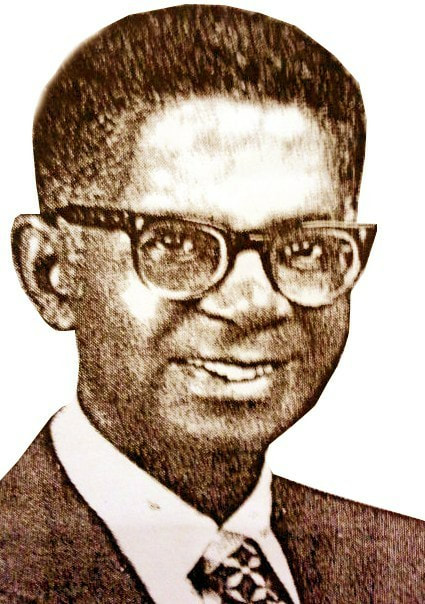|
John Charles Mickle Jr. was born in Birmingham, Alabama in 1914 to parents John Charles Mickle Sr. and Ethelyn Simmons Mickle. Mr. John Mickle Sr. was a high school principle and Mrs. Ethelyn was an elementary school teacher so education was highly important within the Mickle household. Rev. Mickle graduated from Industrial Parker High School in Birmingham, Alabama before traveling to Normal, Alabama to attend Alabama A&M University where he would earn a junior college diploma. Next he would attend Talladega College in Talladega, Alabama where he would earn a bachelor’s degree in 1936. The Reverend’s academic career was far from over, after earning his bachelor’s degree he pursued his graduate studies at Howard University’s Graduate School of Divinity. In 1939 he earned his Master of Divinity from the Chicago Theological Seminary. Rev Mickle was able to attend the Howard School of Divinity with the help of a scholarship provided by Mr. Benjamin Mays; at the time Mr. Mays was the Dean of Religion. Following his calling, Rev. Mickle a newly graduated seminary student moved to Cleveland, Ohio to became the new Pastor of Mt. Zion Congregational United Church of Christ. Rev Mickle would succeed Rev. Grant Reynolds and helped the membership of the church increase, payed off the church’s mortgage and improved church programs. Rev. Mickle would be the Pastor of Mt. Zion until he moved to Memphis, Tennessee in 1946. Black citizens of Memphis remember Rev. Mickle for his active involvement within the civil rights movement. He was ever encouraging, helped to prepare the protester before they held sit-ins, and often bailed fellow protesters out of jail who were arrested for during the sit-ins. Between 1953 and 1969 Rev. Mickle was the Director of Financial Aid and campus Chaplin at LeMoyne College while living in Memphis, Tennessee. A strong opponent of segregation Rev. Mickle and other Memphis leaders would meet to create a strategy to end the Jim Crow era in Memphis. He along with Attorney AA Latting and college students from LeMoyne would hold bi-monthly meetings to help further their cause. Rev. Mickle would die in 1996; a nurse from the Memphis hospital called his wife and told her that her husband died. What we have before us is a brief story about a man who made a significant impact on the civil rights movement but is one of our unknown heroes. Rev. Mickle would serve his community all throughout the United States. He was born in the South but made his mark in the North East, the West Coast as well as the South. He built a friendship with Dr. Martin Luther King Jr. and earned a place in the hearts of everyone he was able to fellowship with. Rev. John Charles Mickle Jr., we proudly stand on your shoulders. J.A. Ward. References:
http://1960smemphiscivilrightsleaderrevmickle.com/index.htm http://www.mtzioncleveland.com/an-historic-church http://www.lulu.com/shop/elva-mickle/1960s-memphis-civil-rights-leader-rev-john-c-mickle-biography/paperback/product-22977131.html
0 Comments
Leave a Reply. |
Details
Categories
All
Click Here to join our mailing list
|
Contact Us: |
Connect With Us |
Site powered by PIT Web Design


 RSS Feed
RSS Feed



